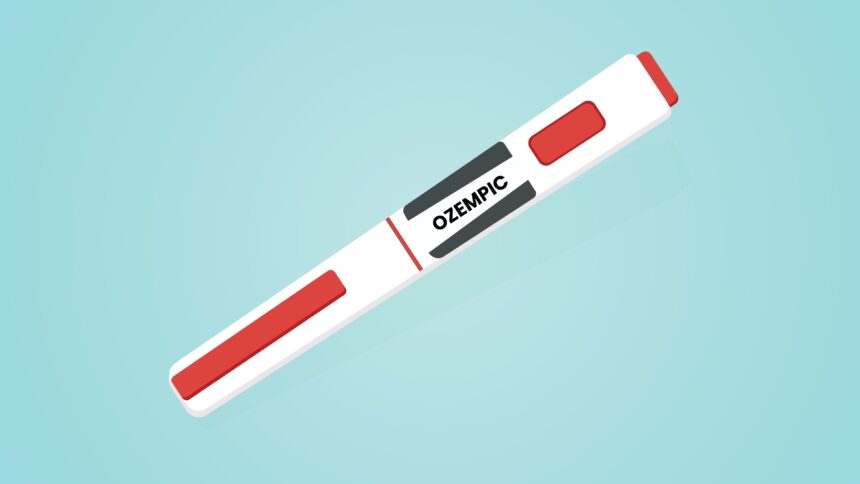In the realm of diabetes management, Ozempic has emerged as a promising medication. Beyond its primary role in managing blood sugar levels, it has also shown potential in aiding weight loss and controlling hunger. This article will delve into the workings of Ozempic, its side effects, and natural alternatives.
Ozempic and GLP-1 Receptor Agonists
Ozempic, also known as semaglutide, is a type of medication known as a GLP-1 receptor agonist. GLP-1, or glucagon-like peptide-1, is a hormone in the body that helps regulate blood sugar levels. It slows down digestion, reduces glucose production in the liver, and helps the pancreas produce more insulin when needed.
As a GLP-1 receptor agonist, Ozempic mimics the functions of the GLP-1 hormone. It binds to the GLP-1 receptors in the body, stimulating them to lower blood sugar levels. This mechanism of action makes it an effective treatment for type 2 diabetes.
Ozempic for Weight Loss
Interestingly, the properties of Ozempic that make it effective for managing diabetes also contribute to weight loss. By slowing down digestion, Ozempic helps individuals feel fuller for longer, reducing the urge to eat and helping control calorie intake. This effect, combined with its ability to regulate blood sugar levels, can lead to weight loss over time.
Side Effects of Ozempic
Like all medications, Ozempic can cause side effects. Common side effects include nausea, vomiting, diarrhea, abdominal pain, and constipation. These side effects are usually mild and tend to decrease over time as the body adjusts to the medication.
However, Ozempic can also cause more serious side effects. These include pancreatitis, changes in vision, kidney problems, and allergic reactions. If you experience any severe side effects while taking Ozempic, it’s important to seek medical attention immediately.
Integrating Ozempic into a Comprehensive Diabetes Management Plan
Starting a new medication like Ozempic should be part of a comprehensive plan for managing diabetes. This plan should be developed in consultation with a healthcare provider and tailored to the individual’s specific needs and circumstances.
The process of starting Ozempic involves an initial dose that is gradually increased over time. This gradual increase helps to minimize potential side effects and allows the body to adjust to the medication. Regular monitoring of blood sugar levels is crucial during this period to assess the medication’s effectiveness and adjust the dosage if necessary.
In addition to medication, the management plan should include lifestyle modifications such as a balanced diet, portion control plan and regular exercise. It’s also important to monitor other health indicators such as blood pressure and cholesterol levels, as individuals with diabetes are at increased risk for other health conditions like heart disease.
Furthermore, regular check-ups with a healthcare provider are essential to monitor the progress and make any necessary adjustments to the treatment plan. These check-ups also provide an opportunity to discuss any concerns or side effects related to the medication.
Remember, while Ozempic can be a valuable tool in managing diabetes and promoting weight loss, it’s most effective when used as part of a comprehensive, individualized treatment plan.
Natural Alternatives to Ozempic
While Ozempic can be effective in managing diabetes and aiding weight loss, some individuals may prefer natural alternatives. Lifestyle changes, such as adopting a healthy diet and regular exercise, can significantly improve blood sugar control and promote weight loss.
In terms of diet, consuming foods with a low glycemic index can help regulate blood sugar levels. Regular physical activity, on the other hand, can increase insulin sensitivity and help the body use glucose more effectively.
Additionally, certain natural supplements, such as cinnamon and chromium, have been shown to help regulate blood sugar levels. However, it’s important to consult with a healthcare provider before starting any new supplement regimen.
In conclusion, Ozempic offers a promising approach to managing diabetes and controlling weight. However, like all medications, it’s important to use it under the guidance of a healthcare provider and in conjunction with a healthy lifestyle.

